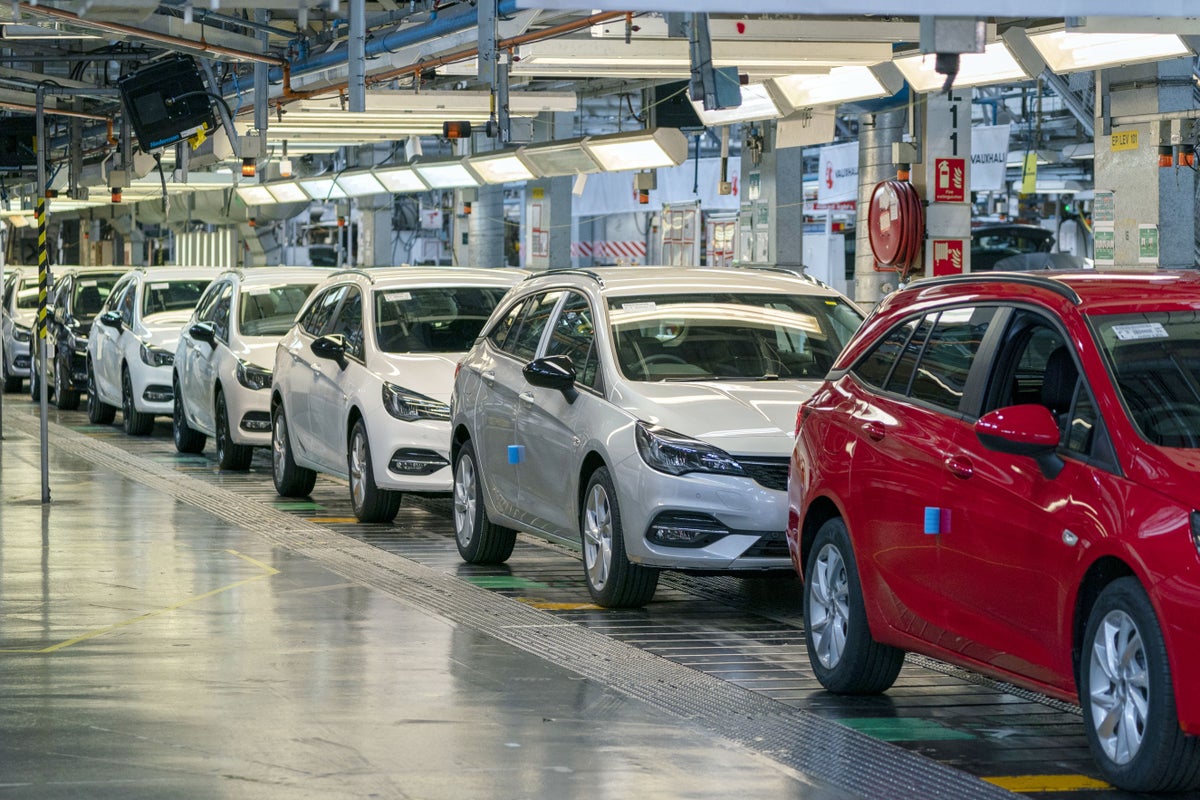
One of the world’s biggest carmakers warned it will not make electric vehicles in the UK without changes to the Brexit deal.
Stellantis – the parent company of Vauxhall, Citroen, Peugeot and Fiat – which employs more than 5,000 people in the UK – told a Commons inquiry into supply of batteries for EV manufacture that their UK investments were in the balance because of the trade deal.
The warning from the world’s fourth biggest car firm came as an economist warned there is an “existential threat to the UK’s car industry”. And Labour leader Sir Keir Starmer joined calls for the UK’s post-Brexit trade deal with the EU to be “improved”.
Stellantis committed to making electric vehicles at its Ellesmere Port and Luton plants two years ago.
But in a submission to the inquiry, Stellantis said the Brexit deal was a “threat to our export business and the sustainability of our UK manufacturing operations”.
It called on the government to agree with the EU to keep existing rules until 2027, scrapping next year’s planned changes which state 45% of an electric car’s value should originate in the UK or EU to qualify for trade without tariffs.
Stellantis said the rising cost of raw materials during the pandemic and energy crisis meant it was “unable to meet these rules of origin”.
It said the upcoming rules would see 10% tariffs on trade with the EU and make domestic production and exports uncompetitive with Japan and South Korea.
The company said that would mean manufacturers “will not continue to invest” and will relocate.
“To reinforce the sustainability of our manufacturing plants in the UK, the UK must consider its trading arrangements with Europe,” Stellantis told the inquiry, listing Honda’s closing of its site in Swindon and investment in the US as examples of its impact.
We need to reinforce the competitiveness of the UK by establishing battery production in the UK— Stellantis
Stellantis said there will be “insufficient battery production” in the UK or Europe to meet government targets in phasing out petrol and diesel vehicles by 2025 and 2030.
“It we are unable to rely on sufficient UK or European batteries, we will be at a major competitive disadvantage. In particular against Asian imports,” they said.
“We need to reinforce the competitiveness of the UK by establishing battery production in the UK.”
And Sir Keir told BBC Breakfast while the UK will not reenter the EU under a Labour government, “we do need to improve the deal”.
He added: “We want a closer trading relationship, we absolutely do. We want to ensure that Vauxhall and many others not just survive in this country but thrive.
"Because there are jobs bound up, there are families watching this morning either employed by Vauxhall or a similar place who are deeply worried about what this means.
"So yes we need a better Brexit deal. We will make Brexit work. That doesn’t mean reversing the decision and going back into the EU but the deal we’ve got, it was said to be oven-ready, it wasn’t even half-baked.”
Transport minister Richard Holden suggested there were “further tweaks” that could be made to the deal with the EU.
Electric cars and batteries were among the final parts of the Brexit deal agreed between then Prime Minister Boris Johnson and President of the European Commission Ursula von der Leyen in 2020.
Mr Holden told LBC: “I'm sure that there are further tweaks that could be made… if more work needs to be done, I'm absolutely certain that the Business and Trade Secretary will do that over the coming days and weeks.”
David Bailey, professor of business economics at the Birmingham Business School, told the BBC’s Today programme that increased tariffs and stricter rules in post Brexit trading agreements will put British manufacturers at a competitive disadvantage.
He said: “I think there is a kind of existential threat to the UK car industry.
“The rules in the Brexit agreement don’t help the UK car industry either. If they can’t meet those rules, they’ll face a 10% tariff on cars made in the UK and exported to the EU and vice versa. That will put the UK at a competitive disadvantage.”
He added: “Car makers have been saying for some time, they can’t meet those rules as they tighten up, and they’re going to potentially be facing tariffs.”







